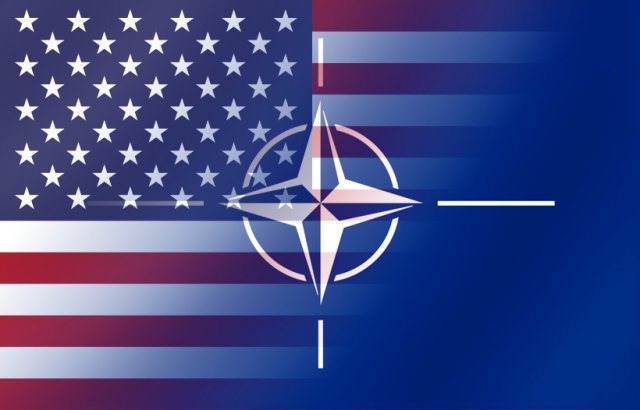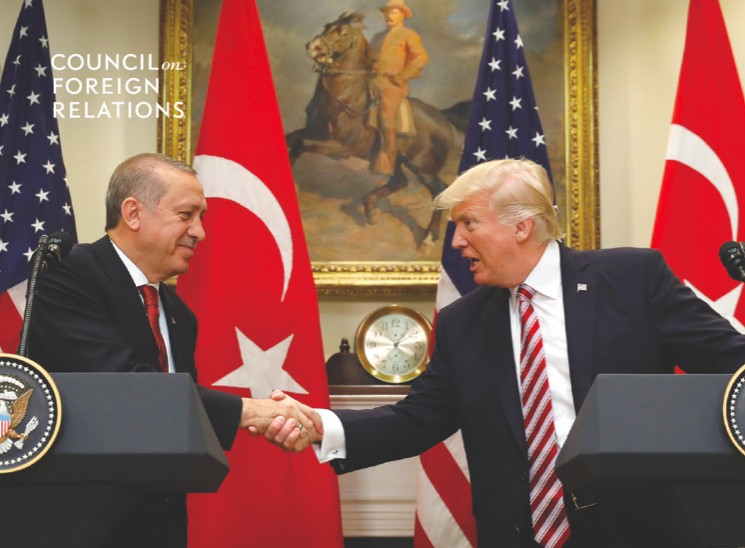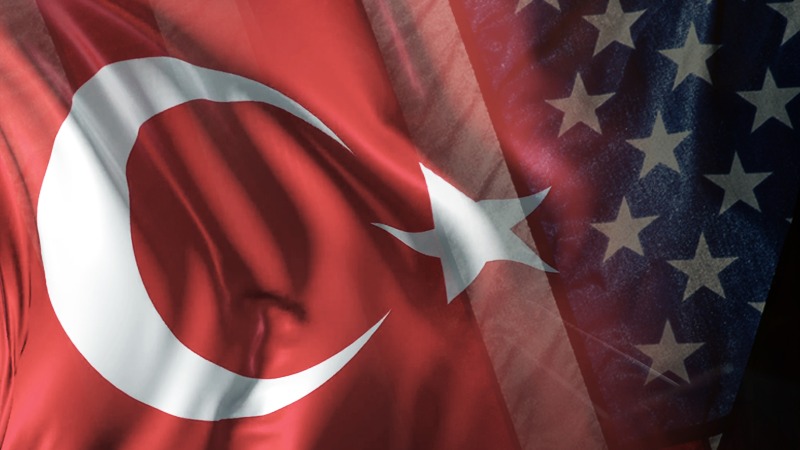“If the allies do not change their attitude, the Western alliance could fall apart… A new world will be established on new terms, and Turkey will find itself a place in that world.”
The Second President of the Republic of Turkey,İsmet İnönü, 1964
The relationship between Turkey and the US is in the darkest hour of its history.
Turkey, a member of NATO since 1952, is deepening its ties with Russia and Iran, countries the US defines as absolute enemies.

Counter-terrorism operations against the pro-US groups within Turkey, most notably FETÖ and the PKK, continue.
The Turkish authorities are not refraining from expressing the thesis that the US had a hand in the July 15th coup attempt.
The Turkish Armed Forces maintain military operations in Syria against the YPG/PYD which are allied and supported by the US.
In this tense period between Ankara and Washington, a report titled “The future of the US-Turkey relations: Neither friend nor foe” by Steven N. Cook and issued by the Council on Foreign Relations in November 2018 includes assessments of a particular importance.

“NEITHER FRIEND NOR FOE”
The main thesis of the article, as can be inferred from the title, is that Turkey is no longer a friend of the United States.
In the report, Washington’s grievances against Ankara are listed as the following:
- “First, and most important, is Ankara’s intention to purchase an advanced air defense system, the S-400, from Russia.”
- “Second in terms of importance is the Turkish effort to complicate the fight against the self-declared Islamic State, notably through Ankara’s incursion into northern Syria, where it has targeted Washington’s Syrian Kurdish allies.”
- “Third, throughout his tenure Erdogan has demonstrated a willingness to undermine U.S. policy on Iran, by attempting to negotiate a separate nuclear agreement with Tehran, opposing UN sanctions on that country, and then helping Iran evade those sanctions.”
- “Another point of conflict was the arrest and trial of Andrew Brunson on terrorism charges.”

The complaints of Turkey are represented in the following headlines:
- The political and military support that the US gives to YPG/PYD – who are nothing but an extension of the PKK in Syria.
- The US’s refusal to extradite Fethullah Gulen, the mastermind of 15 July 2016 Coup Attempt in Turkey.
- The penal sanctions against state-owned Halkbank and its executives on charge of violating sanctions against Iran.
- The sanctions against Turkish banks resulting from Pastor Brunson’s detention.
Cook comments that the disputed points between the two countries have irreversibly “poisoned” relations between Washington and Ankara, and states that he finds the Trump administration’s efforts to restore relations with Turkey through diplomatic maneuvers absurd.
“OUR PROBLEM WITH TURKEY IS STRUCTURAL”
The article strikingly argues that “although the bilateral relations got tenser in the Recep Tayyip Erdogan period, the problem with the US-Turkey relations is structural.”
Underscoring the fact that the two countries had issues regarding Cyprus and the so-called “Armenian Genocide” even during the Cold War era, in which the relation of alliance was at its peak, Cook remarks that after the fall of Soviet Union, the policymakers in Washington failed to review their Turkey policy.
Cook emphasizes that, in its present state, even the opposition parties in Turkey support anti-American policies with regard to Syria, FETO and the Kurdish State.
In the report, it is stated that Turks and Americans evaluate “their national interests and priorities in different ways” and that Ankara will now become the US’ rival.
A CALL FOR NEW STEPS AGAINST TURKEY
Cook calls for the Trump administration to no longer think of Turkey as an ally and to take new steps against Ankara.
His policy suggestions in relation to Turkey are the following:
- “First, U.S. policymakers should recognize that the United States And Turkey have gone from ambivalent allies to antagonists.”
- “Second, the United States should develop alternatives to the Incirlik Air Base (…) Turkish officials have threatened to rescind permission for the anti-ISIS coalition’s use of the facility over the U.S.’ relationship with the YPG—a warning that plays well with nationalists. U.S. officials should hedge against continuing changes in the U.S-Turkey relationship and negotiate agreements to establish or improve American access to bases in Cyprus, Greece, Jordan, Romania, and potentially Iraq.”
- “ Third, the United States should not accept Turkey’s demands that it end its military ties with the YPG (…) the Turkish government and the government-friendly press intensified their anti-American messaging,including by making threats to U.S. soldiers and officers in Syria.
- “And last, U.S. officials should take a stronger public stand on Turkish policies that undermine U.S. policy.” One suggestion in this regard is that the US terminate the countries’ joint F-35 program.
The take away from this report by the CFR, what some refer to as the “shadow ministry of state”, is that Turkey is being discarded as a regional ally by the US and will continue to be seen as a target instead.
Cook’s report, in fact, is nothing but a sober analysis of a concrete situation.
The clash between Ankara and Washington started long ago and Turkey continues to take steps in order to defend its territorial integrity and independence.
It is clear that if Ankara deepens its cooperation with countries in the region, notably Russia and Iran, it will strengthen its hand against Washington’s attacks.
The vision of İsmet İnönü, a hero of the Turkish War of Independence and the second president of Turkish Republic, is being realized; a new world is being established and Turkey is finding its place with cautious but sound steps.

















Leave a Reply